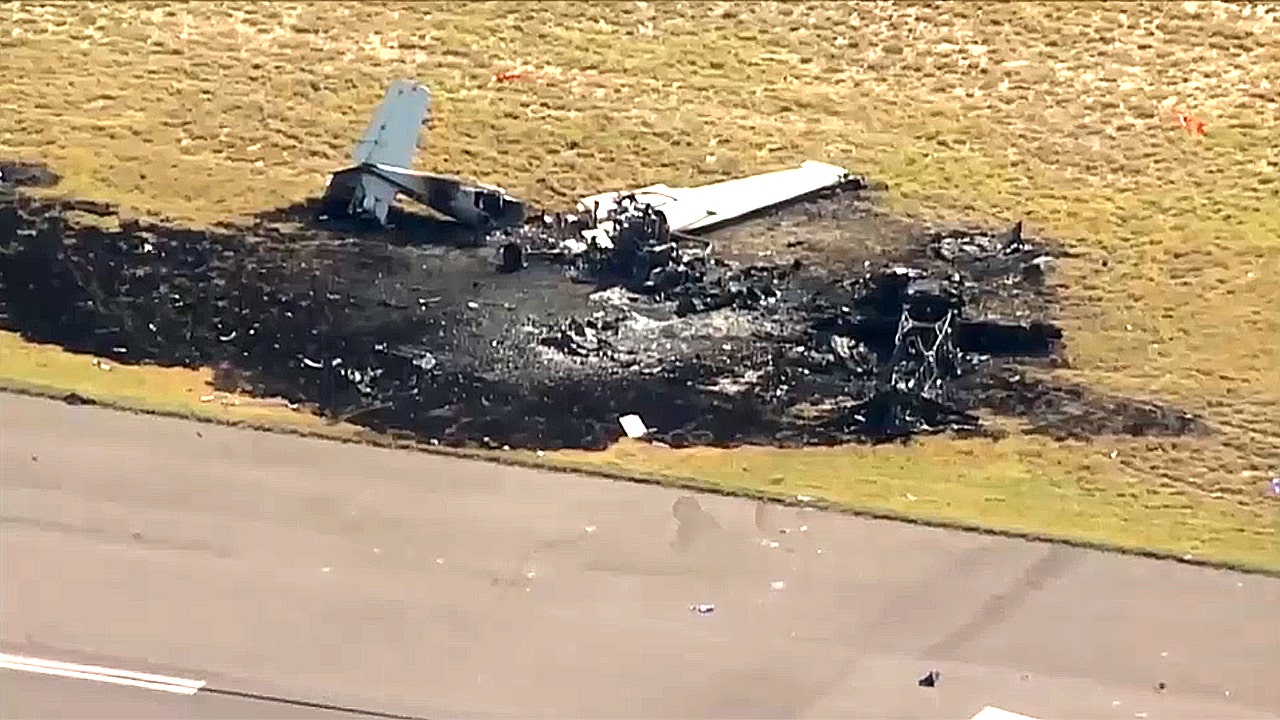Hell’s bells!
Researchers have found a new way to keep marauding gray wolves from mauling herds of cattle out West — by blasting tunes by Aussie rockers AC/DC from drones to scare the hungry predators.
US Department of Agriculture biologists are finding that the classic rock group’s hit tune “Thunderstruck” and sounds from Hollywood flicks can leave the wolves shaking all night long — and away from valuable livestock near the California and Oregon border.
“Wolves are frightened of novel things,” said Amaroq Weiss, a wolf advocate with the Center for Biological Diversity, to The Associated Press. “I know that in the human imagination, people think of wolves as big, scary critters that are scared of nothing.”
Not so, the researchers found — and it’s not just Angus Young’s riffs that shoo the wolves away.
Other tunes, human voices and clips of Scarlett Johansson and Adam Driver from the 2019 hit film, “Marriage Story,” have the wolves fleeing in fear.
Once hunted nearly to extinction, gray wolves have been returning in large numbers to the Northern Rockies, Idaho and Yellowstone National Park thanks to conservation efforts, taking them off the endangered list since the mid-1990s.
One researcher recounted how a wolf was merely curious of a drone that hovered near it, until the operators yelled into the speaker, “Hey wolf, get out of here!” which scared the animal away.
The wolves’ return has created problems for cattle ranchers, who tried everything from electric fences to guard dogs and horseback patrols to protect their herds — none proving very effective.
In 2022 alone, gray wolves killed about 800 domesticated animals across 10 states.
Enter the drones, which have, so far, kept the four-legged hunters at bay.
“I’m very appreciative of what they did,” cattle rancher Mary Rickert said of the USDA effort featuring the blasts by AC/DC, whose tunes include “Hells Bells.”
“But I don’t think it’s a long-term solution,” she said. “What I’m afraid of is that after some period of time, that all of a sudden [the wolves will] go, ‘Wow, this isn’t going to hurt me. It just makes a lot of noise.’ “
The researchers concede it is possible that the wolves will wise up and ignore the noise and acknowledge that the deed is not dirt cheap — with the drones costing about $20,000, not counting the price of training and employing pilots to run the operation.
The drones are also less effective in wooded areas, the terrain for many ranches.
But “if we could reduce those negative impacts of wolves, that is going to be more likely to lead to a situation where we have coexistence,” researcher Dustin Ranglack said.
Read the full article here















